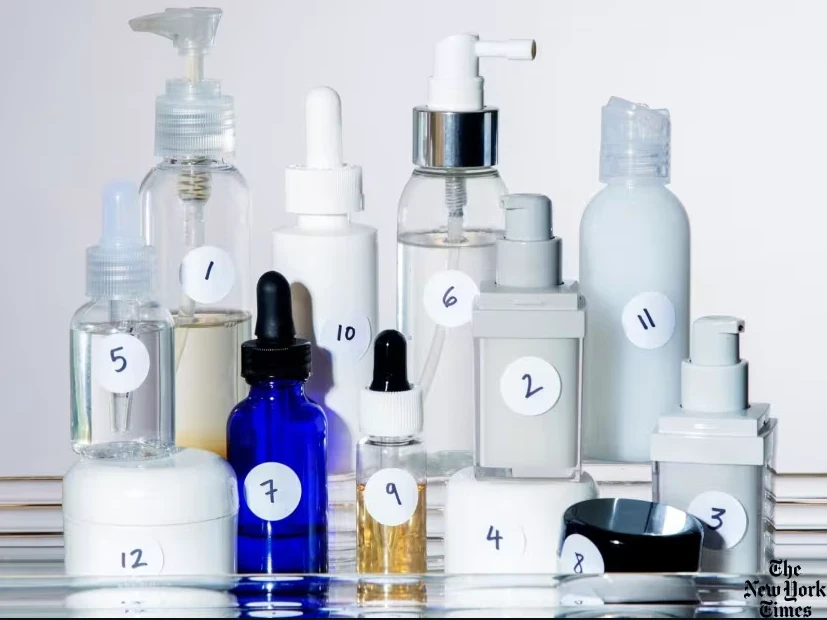Dermatologists recommend simplifying your daily skincare routine to just three essential steps: cleansing, moisturizing, and sun protection.

Have you ever felt that choosing skin care products at the cosmetics counter is a “headache” experience? That is why many consumers today are putting their trust in “reviews” on social networks.
“Not only you, but we - dermatologists also feel overwhelmed by the 'huge' amount of information about skin care on current platforms,” said Ahmad Amin, Associate Professor of Dermatology at Feinberg School of Medicine (Northwestern University, USA).
Dermatologists recommend simplifying your skincare routine to just three essential steps: cleansing, moisturizing, and sun protection.
Here are some basic principles of daily skin care routine that you need to know.
Cleanse your skin properly
Washing your face is a familiar skin care step, but not everyone knows why to do this and how to wash your face properly.
Cleansing your skin will remove excess oil, dirt, dead skin cells, makeup, and environmental pollutants, says Patricia Farris, MD, a dermatologist in Metairie, Louisiana.
She explains that the accumulation of these ingredients can clog pores and cause acne. Furthermore, pollutants can promote the production of free radicals and lead to skin aging.
“Everyone should wash their face twice a day, but for dry or sensitive skin, once is enough,” says Hope Mitchell, MD, a dermatologist in Perrysburg, Ohio.
Washing your face multiple times a day can strip the outer layer of skin, leading to redness, itching, dryness, and rashes.

Choosing the right cleanser depends on your skin type. Dr. Farris suggests choosing a moisturizing cleanser for dry skin, a gel or foaming cleanser for oily skin, and a gentle, fragrance-free cleanser for sensitive skin.
“You don’t need to spend a lot of money on high-end products,” says Dr. Farris; budget brands like Neutrogena, CeraVe, and La Roche-Posay are all good.
Use moisturizer
“Daily moisturizing keeps skin from drying out and reduces the appearance of wrinkles,” Farris adds, “It's important to choose a moisturizer that's just like your cleanser.”
For oily skin, choose a lightweight, “oil-free” moisturizer. Conversely, use a cream product labeled “hydrating” or “for dry skin” if you have dry skin.
People with acne-prone skin need to look for a moisturizer that is non-comedogenic and won't clog pores.
Dr. Mitchell notes that people should moisturize twice a day, even more during dry weather, or whenever skin is feeling parched.
“If your skin feels tight, that's a warning sign that it needs some hydration,” she says.
You can use the same moisturizer in the morning and at night. However, if your daytime moisturizer contains SPF, you should use a different product before bed.
Like cleansers, there are many effective moisturizers on the market at great prices.
Apply sunscreen
Sun protection is an essential step in any skincare routine, regardless of skin type or tone. UV rays from the sun can promote free radical growth, damage collagen, and create wrinkles.
Too much exposure to the sun also increases melanin production, leading to dark spots on the skin. The American Academy of Dermatology (AAD) warns that UV rays also pose a risk of skin cancer.

Choose a broad-spectrum sunscreen that protects against UVA and UVB rays with an SPF of at least 30, recommends the AAD.
Farris says moisturizers that contain sunscreen are a good option if you don’t get a lot of sun exposure. “Many of these products have an SPF of 15, which is lower than the standard recommendation. You should still use a sunscreen,” she says.
Other skin care steps
In addition to the three basic products of cleanser, moisturizer, and sunscreen, you can add serums, exfoliants, eye creams, or toners to your skin-care routine. “These products are added based on your individual skin care goals,” Farris notes.
These products contain active ingredients such as antioxidants, retinol or acids to protect against UV rays and aging, she said. Eye creams are specifically formulated for the sensitive skin around the eyes.
When using multiple products, apply serums and eye creams after cleansing and before moisturizer and sunscreen, says Dr. Farris. “You should try each product for about three weeks before adding another.”
“Don’t apply too many layers as this can irritate, dry out your skin and even cause allergies. If you notice any of these issues, stop using the product,” she adds.
“If you try a number of skin care products and don't get the results you want, see a dermatologist,” says Dr. Amin.
Experts will advise on the types of products and ingredients that can improve skin based on individual needs, and also recommend which products and ingredients have “overstated benefits” from manufacturers.
According to Vietnam+